|
Denturism is defined as, “the practice of Denturists examining oral health, planning treatment, making artificial dentures including other removable oral appliances, and fitting them to their patients.” It’s important to note, we are not dentists.
Equipped with solid technical training as a technician, and post-technician training in sciences, clinical skills, and interpersonal skills, denturists can design, create, construct, and modify (repair and reline) an oral prosthesis (dentures) to ensure optimal fit, maximum comfort, and general well-being. Denturism is a recognized profession throughout the world and is practiced in many countries including the United States, Australia, New Zealand, the United Kingdom, and Canada. In the United States, however, denturism is only legislated and practiced in seven states (Maine, Arizona, Idaho, Montana, Oregon, Colorado, and Washington). In 1994, the People of the State of Washington passed Initiative 607, allowing persons other than dentists to manufacture and sell dentures to the public. This new professional would be known as a denturist. Joey Berlanga was one of the original 24 Denturists who helped to pass the initiative. Today, denturists are recognized as an important part of the health profession in Washington. Thanks to those who helped pass the initiative, the public now has the right to choose an affordable alternative when it comes to denture care. Denturists are an important part of the community of dental care providers. When you seek the care of a Denturist you will find that as a patient you play an active role in the discussion of what you desire for your new dentures. Remember, you are in the hands of a professional who specializes only in the making of removable prosthodontics. Here at Berlanga Dentures we will involve you in the steps necessary to ensure your dentures fit properly and meet your full expectations for the rest of your life. The Washington Denturist Association (WDA) was formed to promote unity and to maintain standards of professional ethics among Denturists in our state. For more information on the WDA and Denturism throughout the world, may we suggest the following websites (see below). The Berlanga family would like to thank everyone responsible for the passing of Initiative 607 and for being able to provide the public with quality, affordable denture care. Remember, a Denturist is always the best choice for your denture needs! Contact us to Today to schedule a Free Consultation. Washington Denturist Association National Denturist Association International Federation of Denturists
0 Comments
The Berlanga family history is not only about this wonderful family and their dedication to the denturist community here in Western Washington, it’s also about being pioneers in their industry. Joey Berlanga Sr., Joey’s father, started the denture business at 17-years-old with Harold Moss, who was the mayor at the time and called the business the Wright Park Denture Clinic. They were considered lab technicians at the time since denturists didn’t exist yet, but in 1992 local lab technicians got together to change this. In November of 1994, the People of the State of Washington passed Initiative I-607, allowing persons other than dentists to manufacture and sell dentures to the public. This new professional would be known as a Denturist. Following the passing of I-607, Denturists in the state of Washington were allowed to become licensed and open a denture practice.
In 1992 Joey Berlanga married Jeri and together they opened their first clinic, Puget Sound Dentures, in 1994. In 1996, Joey Sr. retired, and Joey opened the Parkland Denture Center, and in 2013 they opened the Meridian Denture Center in Puyallup. In 2017, Joey’s oldest daughter, Priscilla Berlanga, joined the practice and is working towards her license. Today Denturists are recognized as an important part of the health profession, and thanks to pioneers like the Berlangas who helped pass the initiative, the public now has the right to choose an affordable alternative when it comes to denture care. A Denturist in the State of Washington is a licensed professional whose field of dentistry is dedicated solely to providing removable full and partial dentures directly to the public and who constructs, inserts, and adjusts removable dentures as well as other dentures or implants. Denturists have served many years fabricating dentures and have passed a comprehensive practical exam on the fitting and making of dentures along with a thorough written examination conducted through the State of Washington Board of Denturists. To learn more about Denturists, click HERE. For more information on Denturists visit the Washington Denturist Association Here at Berlanga Dentures we understand the importance of covering your medical expenses. Health benefits give you the piece of mind and assurance that if something goes wrong, you have the coverage to take care of your medical needs.
If you have dental insurance, it may include coverage for dentures. This typically means that up to 50% of the cost of dentures is covered. However, regular deductibles and co-pays still apply. Additionally, there are often stipulations on what procedures are covered and how often you can replace the dentures (full or partial), typically 5, 7 or 10-year clauses. We understand that this can be confusing, which is why we recommend that you reach out to us so we can help you consider all your options. We can help you navigate your specific insurance policy and provide procedures and products that fit within your budget. You can view a list of the providers we work with here. Or contact us directly at one of our convenient locations here in Washington, Puget Sound Dentures in Tacoma, Meridian Denture Center in Puyallup, or Parkland Denture Center. Berlanga Dentures is all about dentures and all about You! How much denture adhesive do I need?
For your upper denture, we recommend placing a toothbrush-length of adhesive in the middle, so as you place the denture it will spread out evenly. For the lower denture, apply 4 pea-size drops of adhesive. Be careful not to use too much adhesive. How do I remove my dentures without causing pain? After applying adhesive, it's very difficult to remove dentures. If you feel any pain when trying to remove the dentures, rinse your mouth with warm water first. How do I remove adhesive from my dentures? Patients use a variety of methods to remove the adhesive from their denture once out of the mouth. A dry paper towel works just fine. Or you can also use a piece of gauze, a washcloth, or a wet toothbrush. We do recommend removing all excess adhesive once you’ve removed your dentures. My dentures will not stay in no matter what kind of adhesive I use. What should I do? This might mean it’s time for a reline, or possibly new dentures. If you are feeling any changes in how your dentures fit, it’s time to call your denturist. However, if you are wearing your dentures 24 hours a day, without giving your tissue time to heal, you may begin to feel irritation and the adhesive could fail. We recommend taking your dentures out at night while you sleep. If you are having difficulty applying adhesive, if your dentures are not feeling the way they used to, or you find that your dentures are “falling out” or slipping, make an appointment right away! We’re here to guide you and advise you. The transition from having teeth to wearing dentures can be traumatic. Losing teeth is like losing a limb or other major body part: you experience a significant sense of loss.
That’s why it is so important to have someone who will work with you start to finish, prepare you for what to expect, and make sure you have the right type of denture that fits You! At Berlanga Dentures we can make dentures that will give you the full confidence you had when your natural teeth were whole and healthy. There are several fears people have about getting dentures. People fear they will be judged, that they will lose friends, or make them feel uncomfortable with their partner. They fear that food will be hard to eat and no longer taste good, that they won’t be able to talk without drooling or spitting, and that dentures will cause them pain. All of these fears may be eliminated as long as you have someone who cares about you, your situation and is willing to take the time to make sure your dentures fit properly and look and feel as close to your natural teeth as possible. Dentures are nothing to be afraid of–when they’re done right. Getting dentures is a big step. Which is why we recommend a full consultation with one of our denturists who will outline all your options and take you through the entire process. Call to schedule your consultation today. Dentures replace natural teeth, but they do not feel the same. Although your mouth and tongue become accustomed to this new dental appliance, you will need to change how you handle your food. You may also consider cutting food into smaller pieces, using both sides of your mouth to chew, and chewing more slowly.
After a while, you should be able to eat normally, but it may take more time to get comfortable with harder foods or sticky foods. Using a small amount of denture adhesive (no more than three or four pea-sized dabs on each denture) may help stabilize the dentures and help hold them in place while you learn how to get comfortable with them and will make the learning process easier. Some foods may not taste the same, and your mouth may become less sensitive to hard food – putting your dentures at risk for breakage. You may find it necessary to add more seasoning to your meals and take special care not to eat or drink things that are too hot. Unfortunately, dentures and chewing gum do not usually work well together, no matter which brand of chewing gum you decide to try. The gum typically sticks to the acrylic plastic in the denture. Gum may remain stuck to the denture and eventually harden and discolor. Ultimately, if you wear dentures, you should avoid chewing gum. Eating with dentures will become a pleasant experience, and you will soon be able to eat nearly the same diet you upheld before. You may choose to avoid nuts and seeds, as they can slip under dentures and irritate the mouth. Always keep your dentures clean by removing them every day and brushing them with a soft-bristled toothbrush to remove food deposits and prevent staining. Brush your gums, any remaining teeth and tongue at the same time. Keep in mind dentures should also be soaked overnight in denture cleaning solution so they can stay clean and don't dry out. See our blog post on how to clean your dentures. Yes, you can wear your dentures at night, but it is preferred that they be removed. Removing your dentures at night will give your gums and bone a chance to relax from the pressure of the denture during the day. It allows the tissue to heal and encourages blood flow. If you need to wear your dentures at night, you should find time during the day to properly clean your mouth and your dentures. You should never wear your dentures 24 hours a day without preforming proper oral cleaning.
When dentures are placed the same day the teeth are extracted, it is normal to leave them in the mouth for 24 hours, even wearing them as you sleep. The dentures act like a bandage during the first day. When you visit the denturist the next day, the dentures will be removed and cleaned, sore spots relieved, and the bite adjusted. At that appointment you should have received instructions on caring for and cleaning your dentures. In general, you should remove your dentures every night, clean them thoroughly, and place them in a container with liquid denture cleanser or water to soak overnight. This could prolong the life of your dentures by keeping them free of bacteria, and it will allow your gum tissues to rest and heal. When you’re first fitted for new dentures, it’s normal to experience minor irritation, which should fade as your mouth becomes accustomed to them. The period of pain varies. If you’ve previously worn dentures and now have a new set it may take longer. Similarly, if you had some natural teeth present that were removed at the time of the new dentures, the areas where the extractions were performed may be painful or uncomfortable for a few weeks after the removal of the teeth. Regular visits to your denturist to adjust the dentures as you go through the normal healing process are recommended.
It’s completely normal to experience gum pain or discomfort in the first few weeks of wearing new dentures. It’s even possible to experience some pain with your current dentures as your gums and bone structure change over time. This is likely the result of your dentures rubbing against your gums or not fitting properly, and we recommend you Call Us to Make an Appointment so we can offer solutions. Here are a few things you can try to help relieve your denture pain if needed: Salt Rinse Remove your dentures, add between ½ to 1 teaspoon of salt to a glass of warm water, and rinse your mouth for 15 to 30 seconds to help reduce inflammation. Remove Your Dentures Overnight Take your dentures out while you sleep to give your gums a chance to relax from the pressure of wearing dentures all day. Use A Denture Adhesive Try using an adhesive like Super Poligrip® to help your dentures stay in place. Loose or slipping dentures can be a cause of sore gums. You can also ask your denturist about inserting a denture liner, which acts as a cushion between your dentures and your gums. If you have any pain or discomfort, or have any questions, call and make an appointment right away at any of our locations. We also recommend having a full evaluation with your denturist once a year. The best starting point to see if dentures are an option for you is to see a denturist.
A denturist is a specialist with specific training focused on the restoration and replacement of teeth. A denturist will also be able to explain all your options and help you find a solution that is best for you and your budget. What types of dentures are there? Dentures may replace all or only some of the teeth. The dentures that replace all the teeth are known as complete dentures and they rest on the gums that cover the jawbones. The stability and retention of these dentures can be improved by attaching them to dental implants. Dentures that replace some but not all the teeth are known as partial dentures. They attach to the teeth that are still present, and cover and rest on the tissue and bone where the teeth are missing. Dental implants can also be used to restore and stabilize partial dentures as well. What is the average cost of dentures? Denture fees vary widely based on many factors including the complexity of your situation. However, here at Berlanga Dentures we will try to find a solution that will work for you and your budget. How Do I Know if I Need Dentures? You might think that dentures are only for older people, but that isn’t completely true. Tooth loss and dental problems are a fact of life for people of all ages, and dentures may become something you have to deal with sooner than expected. What Are Dentures? Dentures are replacements for missing teeth that you can remove and put back in as needed. Contrary to popular belief, there is not one single type of denture. In fact, there is a wide variety of denture types and they can be customized to your unique dental needs. While some people need a full set of dentures, others may only need a partial set. Your denturist can tell you what your specific needs are and whether it’s time to explore your options for a full or partial set. Signs You May Need Dentures That said, there are symptoms you may notice that can clue you in to the possibility that dentures may be in your future. Such as: Gum inflammation Gum inflammation may be a sign of (or precursor for) periodontitis, which is a severe gum infection that damages the supporting structures of your teeth. Untreated, this can lead to tooth loss. Advanced tooth decay A cavity here or there isn’t seriously detrimental to your overall oral health — if you promptly address the issue. However, a cavity that goes neglected can significantly impact the health of your tooth and can ultimately result in tooth loss. Pain Dental pain isn’t normal. Pain can indicate a wide variety of oral health issues, some of which can lead to a changing smile and tooth loss. What to Expect with Dentures? As mentioned above, dentures aren’t a one-size-fits-all solution to missing teeth. They are always custom-made to work with your smile. And while they do take some getting used to, modern dentures are natural looking and more comfortable than ever. You may or may not need dentures at some point in your life, and it could be earlier or later in life – it all depends on your personal situation and overall oral health. If you have questions or concerns about the health of your mouth or teeth, be sure to schedule an appointment with your denturist to get the care you need. Here are some of the most common misconceptions about having dentures. They Make You Look Older After the original teeth are removed, there will eventually be a loss of jawbone which can cause some sagging in the lower half of your face making you look older. But dentures don’t have to make you look older. In fact, they can turn back the clock. By giving better support to your facial structures, dentures can reduce or eliminate common signs of aging. However, it is important to make sure your dentures fit properly! Which is our specialty. If your dentures do not fit properly, need an adjustment, or possibly a replacement, it could eventually contribute to jawbone loss causing your lower face to sag. That’s why at Berlanga Dentures we keep our procedures reasonable so you can afford to keep your dentures looking and feeling the way they should. My Dentures Could Fall Out? Falling out is one of the most common tales told about dentures. It makes for a good story: someone is talking, laughing, or coughing, and out come the dentures. While this may have been true of your grandfather’s dentures, that is not the case today. By working with your denturist for regular check-ups, relines for a more accurate fit, using proper adhesives, and maintaining your dentures properly, your dentures should stay right where they belong. Or, for maximum security, you may want to consider implant dentures that won’t come out at all. You Can’t Eat Most Foods No one wants to think they will be stuck eating soft foods after getting dentures. The truth is, if your dentures fit properly and you follow your denturist’s advice on how to clean and maintain your dentures, you can feel confident eating a normal diet. However, if you feel maintaining your dentures daily might be difficult, you might want to consider implant dentures. Your Nutrition Suffers Malnutrition is a real concern among seniors who have lost their teeth, but it doesn’t have to be! If your dentures fit properly, you can enjoy a full range of foods to maintain proper nutrition. They’re Uncomfortable People talk about wanting to take their dentures out when they get home the way they would take off their work boots or tie, but it doesn’t have to be that way. Dentures can be so comfortable that people want to have them in. They may even be tempted to keep their dentures in at night. It’s all about proper fit, which is why having a denturist from start to finish when considering dentures is so important. We work with you and your surgeon to make sure your new dentures are everything you need them to be. Everyone Can Tell You Have Them This is something many people believe about dentures — once you have them, everyone will know that they’re there. You’ll make sucking sounds, have a denture smell, and your dentures will slip and click when you talk. This may have been true in the past, but today dentures can be made so realistic in appearance that when they fit properly no one will even know you have them. Proper fit and proper cleaning will eliminate other possible signs of dentures. If you are considering dentures, schedule a consultation with one of our denturists today. We will go over all your options with you, and help you find the solution that’s best for You. |
Office HoursMonday-Friday: 9am to 5pm
See locations for specific times. |
Locations |

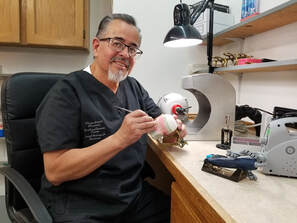
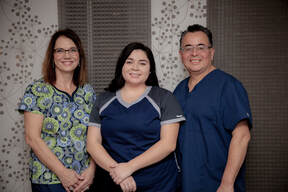

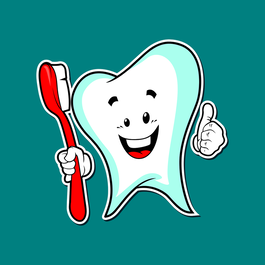

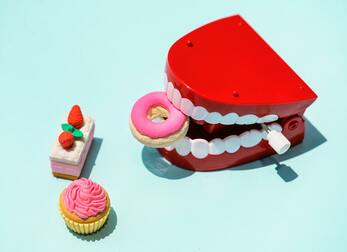

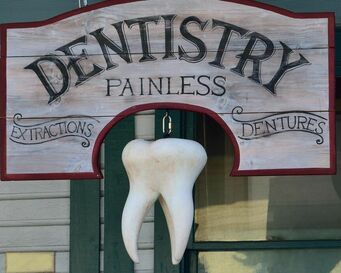


 RSS Feed
RSS Feed